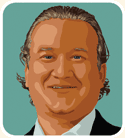El Salvador is the country with the least foreign direct investment (FDI) in Latin America according to a report released last week by the United Nations Economic Commission for Latin America and the Caribbean (ECLAC). The country experienced a 79 percent decline in investment compared to the previous year, with total investment amounting to a meager $89 million.
As the report was being quoted in local media outlets an avalanche of political opportunism ensued. For one, members of the private sector—citing recent rifts between the judicial and legislative branches over some controversial decisions related to electoral reform—cited judicial security as the source of lagging investment. Alternatively, President Funes blamed the private sector for not investing in El Salvador. This criticism was reinforced in the report’s analysis, which noted that Salvadoran businesses were the largest investors in Central America with a capital outflow greater than those of their regional competitors.
The ghosts of political instability and public insecurity in a country with endemic homicide rates resonated widely. But while we become entrenched in politically charged bouts, we fail to evaluate information for what it is.
Why is El Salvador posting such low numbers? Part of it is due to changes in the formal accounting principles used to aggregate foreign direct investment, according to ECLAC. Then they cite “endogenous factors like citizen insecurity, increasing operation costs of foreign businesses and the erosion of certain incentives associated to special sectors.”
Take the case of insecurity. El Salvador has high crime rates but so does Guatemala and Honduras and their FDI grew 18 percent and 52 percent, respectively. Second, locals tend to cite the potential for political instability and lack of judicial security for investors. Once again if these were the sole factors deciding where a business invests then why has FDI grown in Honduras and Nicaragua?
Almost everyone would agree that Honduras has undergone a year plagued with the potential for political instability. As for Nicaragua, the case is clearer. The unconstitutional usurpation of the Supreme Court and Supreme Electoral Tribunal along with President Ortega’s anti-American discourse would seem to be perfect fodder for a sharp decline in investment. However, FDI grew by 17 percent.
The underlying issues that are making foreign and Salvadoran investors look elsewhere for investment should be addressed in a serious and systematic manner. Decision makers need to avoid falling into an ideological and political spiral that fails to get to the heart of the problem. And once the issues have been identified, decisions should and must be made to promote economic development.
Economic issues should take the center stage as El Salvador moves into an electoral year. This new ECLAC report again shows why this is so crucial. But, the decline in FDI should also be a catalyst for President Funes to use his high levels of political capital to gain widespread consensus for innovative economic, judicial and political reform.
For decades El Salvador was a beacon of economic prosperity for the region. With current economic indicators it seems we’re soon to be replaced by equally violent and more politically unstable neighbors. Instead of wasting precious time in trying to pinpoint a culprit, all efforts should be placed in constructing specific policies to increase investment and employment.
*Julio Rank Wright is contributing blogger to AQ Online. He is from San Salvador, El Salvador, but temporarily living in Washington DC.





